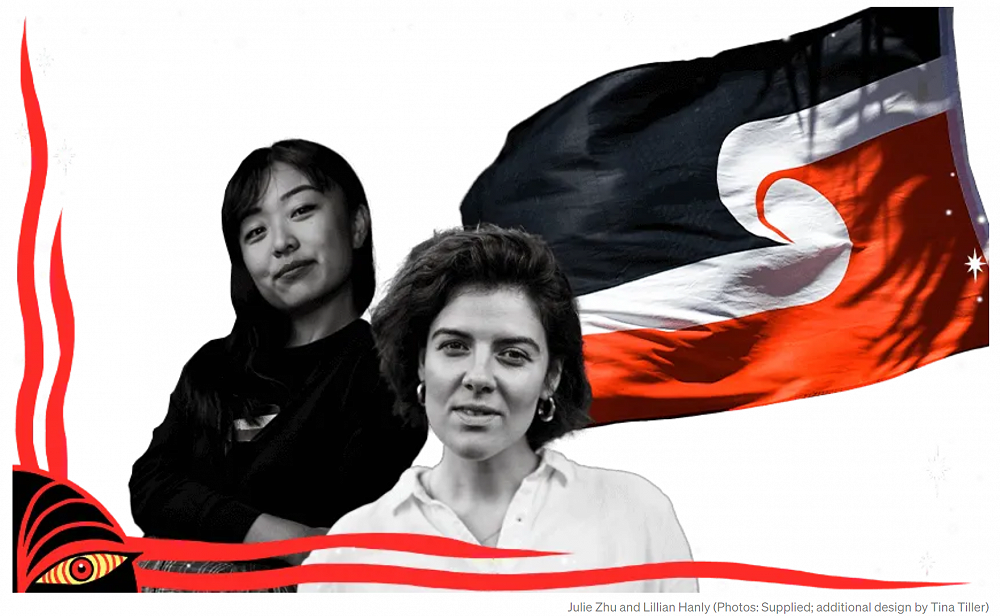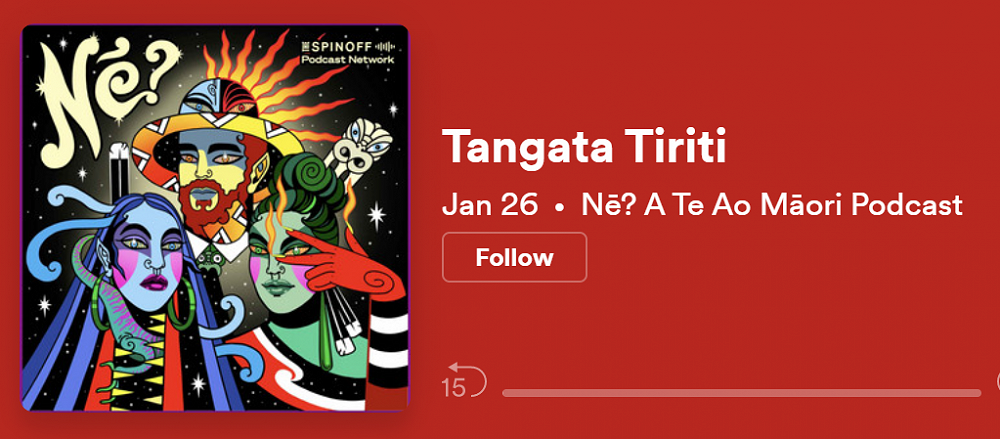
What does it mean to be tangata Tiriti?
In the lead-up to Waitangi Day, Te Kuru o te Marama Dewes speaks with two tangata Tiriti about the other side of the Treaty partnership, and what they see as their obligations in upholding tino rangatiratanga.
Te Tiriti o Waitangi is the first immigration document of Aotearoa, enabling non-Māori to settle in this country. A partnership between the two races was formed on February 6, 1840, when rangatira from some (but not all) iwi and representatives of the Crown signed the foundational document.
Rangatira Māori signed Te Tiriti o Waitangi with the aspirational vision of a partnership where they would continue to self-govern and maintain mana over their lands and people. Instead of cohabitation, the Crown opted to conquer and usurp iwi and hapū, and for generations since, Māori have been calling on the Crown to hold up their side of the deal.
Yet, there is another party to the Treaty, whose rights and obligations aren’t often spoken about – Pākehā and tauiwi. They’ve made a home here in Aotearoa, so have responsibilities as citizens of this country to uphold the promise of tino rangatiratanga enshrined in Te Tiriti o Waitangi.
They’re tangata Tiriti, a term that is aspirational as much as it is political. To be a person of the Treaty is to build a relationship with Māori, to understand the history of how this nation was formed and to commit to the ongoing fight for Māori self-sovereignty. It acknowledges that Aotearoa is a multicultural country, that Pākehā aren’t the only grouping brought together with Māori under the Treaty.
We explore what it means to be tangata Tiriti with two non-Māori, Lillian Hanly and Julie Zhu. They share their experiences reluctantly, and with much persuasion, as they know it’s not their place to take up space from Māori – which is also what makes them good allies.

Follow Nē? on Apple Podcasts, Spotify or your favourite podcast provider.
Lillian Hanly: Walking in both worlds as a Pākehā
Lillian Hanly is Pākehā in whakapapa but her worldview has been shaped predominately by te ao Māori. She was raised by her two mums, one Pākehā and the other Māori, speaking te reo Māori with her Māori siblings. We often talk about Māori walking in both worlds, but it’s not often that Pākehā share that experience.
“I think it’s important to point out that I didn’t actually do the hard yards. It was my parents who made the difficult decisions and carried that struggle,” Hanly says.
She went through kōhanga reo and kura kaupapa, but Hanly’s parents made the decision to send her to an English-medium high school, because they didn’t want her taking the seat of a Māori. This extended to her not going into the Māori-immersion unit at her high school.
“Those years… it was a reckoning for me. I attached myself to the Pasifika girls at schools, because it was like, OK, here are people who have similar whakaaro.
“[Then] I would beat myself up and go, ‘Lillian, you’re Pākehā, you have to go find out what the Pākehā people are doing.”
The Māori teacher at her high school encouraged her to join the Māori unit, because of her capability and her whānau, but she knew it wasn’t her place.
“I was working through that understanding that there are places that I didn’t need to occupy. It was created for a purpose which I did not need. I had plenty of other spaces that I could occupy and be comfortable.”
Now a political producer for 1News, Hanly refuses to accept roles within Māori news organisations or Māori reporting roles in mainstream newsrooms, despite many offers.
Acknowledging how fortunate she was with her upbringing, Hanly sympathises how difficult it is for Pākehā just beginning to understand what it means to be tangata Tiriti.
“It’s a very different process for other tangata Tiriti doing that whole journey on their own, beginning as an adult, unlearning things and coming to accept things you might have always been taught as untrue,” she says.
“I really do have a lot of admiration and respect for those people.”
A good friend of hers, Mahdis Azarmandi, a senior lecturer at the University of Canterbury, made her question the idea that Pākehā alone have a special relationship with Māori in relation to Te Tiriti and Aotearoa.
“There is a relationship there, but it was the first time that was challenged to me that actually, Pākehā are part of a wider grouping of many peoples who have a relationship with Māori in the context of Aotearoa.”
At a time the obligations of Pākehā may have been at the forefront of the conversation, Hanly says, but this fails to acknowledge the many other groups brought together under Te Tiriti.
“I’ve seen this idea that Pākehā are special because we signed first or whatever, but it totally links into whiteness… [and] continues to put us up on a higher pedestal,” says Hanly.
Tangata Tiriti is about active citizenship, she says, whereas Pākehā is a passive identity.
Then there’s “Kiwi”, the soft, commercialised, superficial cultural identity of Swanndris, buzzy bees and All Blacks that New Zealand has marketed not only internationally but to itself.
“You can easily tap into this passive identity of being Kiwi without doing much, but if you’re going to engage with being tangata Tiriti, it’s going to require some shifting of power but also shifting of ways in which we engage and acknowledge,” says Hanly.
Writing on tangata Tiriti, Tina Ngata says we need good Treaty partners, not non-Māori trying to be Māori. This relates to many aspects of how non-Māori engage with Māori culture. It speaks to taking up space, and recognising when to allow tangata whenua the space to speak, or to determine solutions for our own people.
“My strength, I think, is just knowing when not to speak, metaphorically. Because that can go in so many ways. This kōrero also shouldn’t be about me as the ultimate ally, because that’s not the case. We all make mistakes, me included,” says Hanly.
Julie Zhu: Asians for tino rangatiratanga
Julie Zhu is a multidisciplinary creative, a film-maker and producer. She recently produced the podcast Conversations With My Immigrant Parents, as well as the Takeout Kids series coming soon to The Spinoff. Born in Xi’an, China, she moved to Tāmaki Makaurau when she was four years old.
Zhu learnt waiata Māori at primary school, and at intermediate, her Sāmoan teacher started and ended every class with a karakia. This early engagement with Māori culture inspired a desire to learn te reo.
She made attempts to study te reo at high school, before completing a diploma in te reo at university, but admits then it was just a hobby, and she didn’t fully understand the wider context.
“I think through learning te reo, you understand more of the perspectives of the people, and even the concepts of land ownership and what that means from a Māori context versus a Pākehā context.”
Around the time she was studying te reo at university, Zhu was also learning more about systemic issues of race and indigeneity, and the impacts of colonisation.
“After that I started moving towards activism, meeting up with other people who were similar to me, who grew up Asian and had a particular experience,” she says. “[We were] focusing on that part of our identity, and starting to understand how that was because of how systemic issues work here in Aotearoa.”
That led to the formation of the group Asians Supporting Tino Rangatiratanga, who advocate in support of kaupapa Māori, and are interested in how sovereignty and land can be returned to Māori and damages caused by colonisation remediated.
“We feel that we have an obligation as tauiwi, or tangata Tiriti, to understand the history of this whenua because we benefit from living here, and because we are still complicit in the ongoing struggles that Māori face,” Zhu says.
There are different types of racism here in Aotearoa: overt racism is what we can see and hear, like name calling; and covert racism is systemic and institutional, prevalent in the likes of the justice and education systems.
Then there’s internalised racism, “what we face when we grow up not wanting to be our own identities, because of how we’ve seen that perpetuated in the media, or stereotyped”, Zhu says, adding that this is something she overcame in relation to her own identity as a Chinese New Zealander.
“I think Aotearoa is getting better at recognising the overt racism… but I think it’s much harder for people here to recognise the institutional and systemic stuff.”
As New Zealanders mature in consciousness and come to terms with the history of colonisation, the expectations in terms of responsible citizenship will continue to evolve.
Zhu says that being a good tangata Tiriti is being open to criticism, being open to being challenged, being humble and never getting defensive about it.
“Being generous and empathetic with where others are at is also important. There’s always more to learn for all of us.
https://thespinoff.co.nz/atea/03-02-2022/what-does-it-mean-to-be-tangata-tiriti
